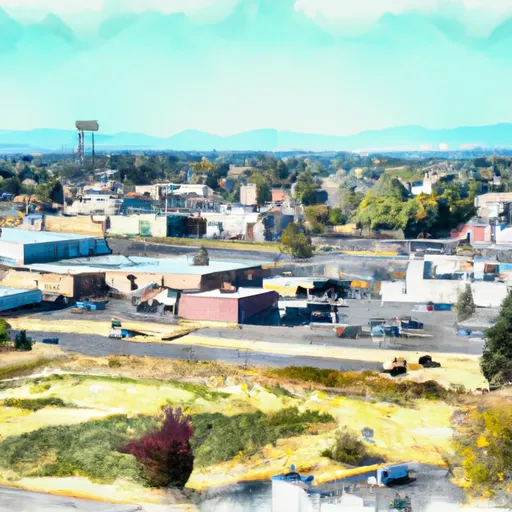-
 Snoflo Premium
Snoflo Premium
Get unlimited access to all our content
With no Ad interruptions! - Start Your Free Trial Login with existing account
Prosser
Eden Index
Climate
7.1
•
Recreation
4.6
•
Community
2.2
•
Safeguard
5.0/10

Prosser is a small town located in the lower Yakima Valley of Washington state. The town experiences a semi-arid climate, characterized by hot, dry summers and mild winters. Summers in Prosser are typically sunny, with temperatures often exceeding 90°F (32°C), while winters are relatively mild with temperatures dropping below freezing only occasionally.
Prosser is situated near the Yakima River, which plays a vital role in the town's hydrology. The Yakima River provides water for irrigation, supporting the region's agriculture and viticulture industries. The river is also a popular spot for fishing, with opportunities to catch various species like trout, salmon, and steelhead.
Outdoor recreation enthusiasts can take advantage of Prosser's beautiful landscape and favorable climate. The area is dotted with numerous vineyards and wineries, offering wine tasting experiences and scenic views. Additionally, there are several parks and trails nearby, including the Prosser Riverwalk Trail, perfect for walking, jogging, or cycling. The nearby Horse Heaven Hills also offer hiking and nature exploration opportunities, with breathtaking vistas of the surrounding area. Whether it's exploring the vineyards, fishing in the river, or enjoying the great outdoors, Prosser has something to offer for outdoor enthusiasts.
What is the Eden Index?
The Snoflo Eden Index serves as a comprehensive rating system for regions, evaluating their desirability through a holistic assessment of climate health, outdoor recreation opportunities, and natural disaster risk, acknowledging the profound impact of these factors on livability and well-being.
Climate Health Indicator (CHI): 7.1
Prosser receives approximately
235mm of rain per year,
with humidity levels near 84%
and air temperatures averaging around
11°C.
Prosser has a plant hardyness factor of
7, meaning
plants and agriculture in this region tend to thrive during the non-winter months.
By considering the ideal temperature range, reliable water supplies, clean air, and stable seasonal rain or snowpacks, the Climate Health Indicator (CHI) underscores the significance of a healthy climate as the foundation for quality living.
A healthy climate is paramount for ensuring a high quality of life and livability in a region, fostering both physical well-being and environmental harmony. This can be characterized by ideal temperatures, reliable access to water supplies, clean air, and consistent seasonal rain or snowpacks.
Weather Forecast
Streamflow Conditions
Yakima
Area Rivers
Yakima
Snowpack Depths
Yakima
Reservoir Storage Capacity
Yakima
Groundwater Levels
Recreational Opportunity Index (ROI): 4.6
The Recreational Opportunity Index (ROI) recognizes the value of outdoor recreational options, such as parks, hiking trails, camping sites, and fishing spots, while acknowledging that climate plays a pivotal role in ensuring the comfort and consistency of these experiences.
Access to outdoor recreational opportunities, encompassing activities such as parks, hiking, camping, and fishing, is crucial for overall well-being, and the climate plays a pivotal role in enabling and enhancing these experiences, ensuring that individuals can engage in nature-based activities comfortably and consistently.
Nearby Ski Areas
Catastrophe Safeguard Index (CSI):
The Catastrophe Safeguard Index (CSI) recognizes that natural disaster risk, encompassing floods, fires, hurricanes, and tornadoes, can drastically affect safety and the overall appeal of an area.
The level of natural disaster risk in a region significantly affects safety and the overall livability, with climate change amplifying these risks by potentially increasing the frequency and intensity of events like floods, fires, hurricanes, and tornadoes, thereby posing substantial challenges to community resilience and well-being.
Community Resilience Indicator (CRI): 2.2
The Community Resilience Indicator (CRI) recognizes that education, healthcare, and socioeconomics are crucial to the well-being of a region. The CRI acknowledges the profound impact of these elements on residents' overall quality of life. By evaluating educational resources, healthcare accessibility, and economic inclusivity, the index captures the essential aspects that contribute to a thriving community, fostering resident satisfaction, equity, and social cohesion.

